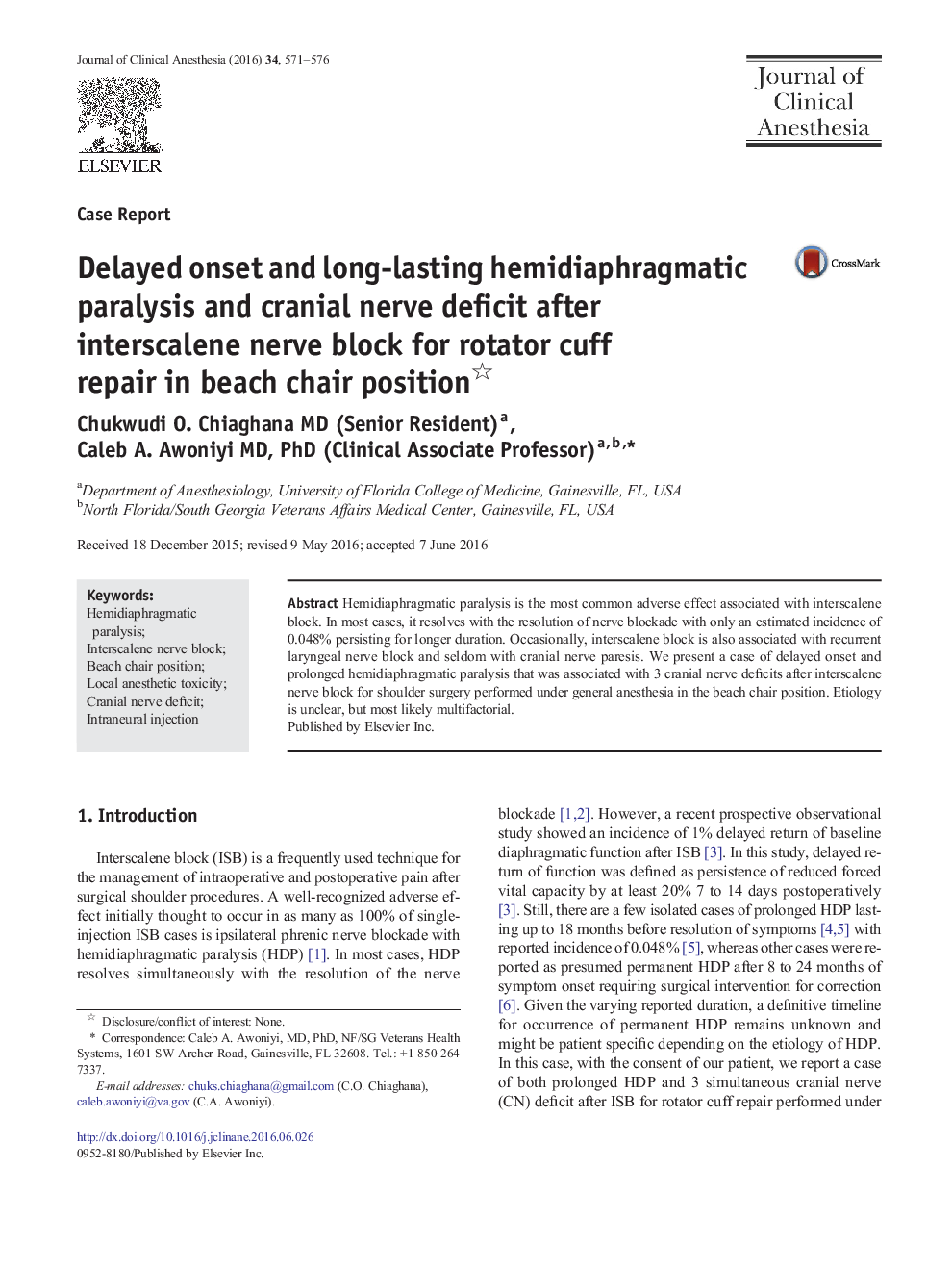| Article ID | Journal | Published Year | Pages | File Type |
|---|---|---|---|---|
| 5884626 | Journal of Clinical Anesthesia | 2016 | 6 Pages |
Abstract
Hemidiaphragmatic paralysis is the most common adverse effect associated with interscalene block. In most cases, it resolves with the resolution of nerve blockade with only an estimated incidence of 0.048% persisting for longer duration. Occasionally, interscalene block is also associated with recurrent laryngeal nerve block and seldom with cranial nerve paresis. We present a case of delayed onset and prolonged hemidiaphragmatic paralysis that was associated with 3 cranial nerve deficits after interscalene nerve block for shoulder surgery performed under general anesthesia in the beach chair position. Etiology is unclear, but most likely multifactorial.
Keywords
Related Topics
Health Sciences
Medicine and Dentistry
Anesthesiology and Pain Medicine
Authors
Chukwudi O. (Senior Resident), Caleb A. (Clinical Associate Professor),
